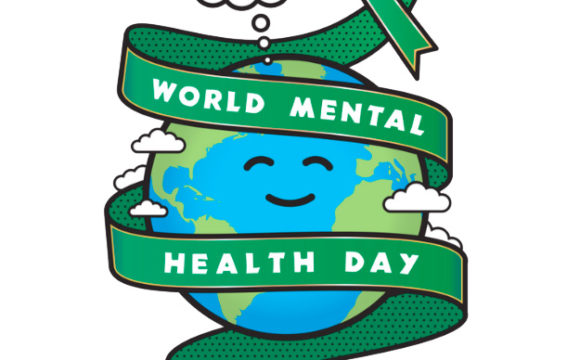Why doesn't our brain disconnect after work? Science explains how to truly disconnect on holiday to recover better.
The occupational health physician is the advisor to both the employer and the employee in matters of health, safety and well-being at work.
The employer’s legal obligations are:
- to ensure pre-employment and periodic visits with a preventive purpose;
- to ensure a return-to-work examination after an absence of more than 6 weeks;
- to determine positions incompatible with pregnancy and to request a work exemption for the pregnant employee, if necessary.
All these consultations are mandatory and are covered by the employer’s contributions. They are free for the employee, take place during working hours and are, of course, strictly confidential.
The mission of the occupational health physician also includes training and informing employers and employees on health, safety and well-being at work.
The programs and training sessions we offer on these topics are detailed in the « Trainings » section.
Every employee is entitled to regular medical surveillance.
Physical health directly influences the ability to function optimally in a work environment. Good physical health is therefore the key to optimal productivity. It is essential that employers and employees collaborate to promote and maintain good overall health, particularly by:
- Fostering a healthy and safe work environment;
- Encouraging healthy lifestyle habits;
- Avoiding exposure to risk factors;
- Preventing chronic diseases;
- Offering flu vaccination.
Mental health concerns emotional, psychological, and social balance.It influences the ability to work effectively, which is why it is crucial to take good care of it.
Neglecting it can have consequences that affect both professional and personal life.
The main factors to monitor include:
- Stress and anxiety;
- Depression and mood disorders;
- Excessive pressure and expectations;
- Conflictual or toxic social relationships;
- Loneliness and isolation.
Workplace ergonomics involves adapting the work environment to meet the needs and abilities of employees. It is essential for reducing the risk of injuries and occupational diseases. It is crucial that employers and employees collaborate to:
- Assess the risks associated with posture.
- Design workspaces to reduce physical strain.
- Select equipment and tools that meet the needs of employees.
- Avoid static positions and encourage movement.
Consultations & Medical Exams at ASTF
In the context of certain procedures and consultations, it is necessary for Human Resources to complete specific forms beforehand.
They are available on the following page:
Consultations are essential activities during which occupational health physicians examine patients.
They are conducted by appointment in the ASTF premises.
Periodic examinations allow for a precise and detailed evaluation of the patient’s health.
They are conducted by appointment at the ASTF, either morning or afternoon.
You are part of an ASTF member company and you would like more information, use the contact form at the bottom of the page.
This is not an appointment form.
For booking appointments and consultations, use your dedicated interface or contact the secretariat by email or by phone +352 22 80 90-1.
Psychological well-being at work
Mental health is an essential pillar of overall well-being and performance at work. In a demanding professional environment, it is crucial to take care of one’s psychological balance as it enables better stress management, improved concentration, and therefore productivity. Psychological well-being contributes to preventing more severe disorders such as depression or burnout.
When faced with stress, anxiety, or professional exhaustion, it is essential to seek help to regain psychological well-being and greater serenity.
Risk Factors, causes, and consequences
Risk factors
Mental health can be affected by various factors, including overwork and workload, lack of recognition, lack of autonomy and control, lack of transparency, a toxic work environment, injustice, and interpersonal conflicts. These elements can gradually erode psychological well-being and lead to more severe disorders. Unrealistic expectations, excessive perfectionism, or a need to avoid all conflicts are all factors that can contribute to mental imbalance.
Consequences
Among the more common consequences, we find sleep disorders, anxiety, eating disorders, addictions, and depression leading to professional exhaustion (burn-out). These problems affect not only work performance, but also personal life and physical health.
The ASTF offers individual support and preventive training sessions
The ASTF’s global approach
Consultations
We organize consultations between employees and their occupational physicians, who, in collaboration with our multidisciplinary team, will define the most suitable preventive measures.
Trainings
Browse the ‘Psychosocial risks and prevention‘ section and the ‘Mental health first aid‘ program.
Support program
Lighthouse, the ASTF’s 3-phase, 3-month multidisciplinary reconstruction program.
A support program developed by the ASTF
The three axes of prevention in occupational health
Primary Prevention
Avoiding the occurrence of risk situations by working upstream to reduce risk factors. We intervene even before the situation has worsened.
At the ASTF, this is reflected in:
– An inventory of workplaces which present risks;
– Training and information for personnel;
– Flu vaccination campaign;
– Definition of a pandemic plan, as just one example;
– Posters;
– Design ergonomics;
– Supply of brochures;
– Check-ups;
– Health coaching;
– Medical examinations upon recruitment.
Our aim to make primary prevention a priority.
Secondary Prevention
Medical supervision of workers. Reducing the damage to personal health. Setting out from the principle that the risk factor cannot be sidelined and that employees must be taught to manage the constraints to which they are exposed in order to minimise the negative effects.
Secondary prevention takes the form of medical supervision of employees:
– Examinations at employee or employer’s request;
– Regular examinations;
– Examinations before a return to work and upon return after an absence;
– Periodic examinations;
– Psychosocial examinations;
– Corrective ergonomics.
Employees benefit from closer medical supervision if they are exposed to particular risks.
Tertiary Prevention
Action is taken when the damage has already occurred.
What will it involve:
– Individual ergonomics;
– Follow-up examinations after redeployment;
– Psychological follow-up examinations;
– Quality cooperation with businesses through human resources, designated workers.
We are here for the benefit of all our affiliated members who wish to improve prevention in their business.
Closer cooperation with our affiliated members through the human resources department and designated workers is one of our priorities.
Latest articles
Contact
Form
For appointments and consultations,
use your dedicated interface.
Fields marked with (*) are required.






















